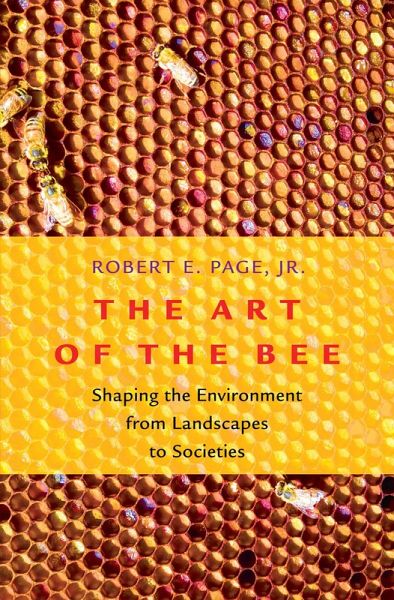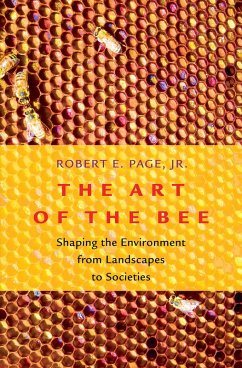
The Art of the Bee (eBook, ePUB)
Shaping the Environment from Landscapes to Societies
Versandkostenfrei!
Sofort per Download lieferbar
18,95 €
inkl. MwSt.
Weitere Ausgaben:

PAYBACK Punkte
9 °P sammeln!
The impact of bees on our world is immeasurable. Bees are responsible for the evolution of the vast array of brightly colored flowers and for engineering the niches of multitudes of plants, animals, and microbes. They've painted our landscapes with flowers through their pollination activities, and they have evolved the most complex societies to aid their exploitation of the environment. The parallels between human and insect societies have been explored by countless sociobiologists. Traditional texts present stratified layers of knowledge where the reader excavates levels of biological organiz...
The impact of bees on our world is immeasurable. Bees are responsible for the evolution of the vast array of brightly colored flowers and for engineering the niches of multitudes of plants, animals, and microbes. They've painted our landscapes with flowers through their pollination activities, and they have evolved the most complex societies to aid their exploitation of the environment. The parallels between human and insect societies have been explored by countless sociobiologists. Traditional texts present stratified layers of knowledge where the reader excavates levels of biological organization, each building on the last. In this book, Robert E. Page, Jr., delves deep into the evolutionary history and the sociality of bees. He presents fundamental biology-not in layers, but wrapped around interesting themes and concepts, and in ways designed to explore and understand each concept. Page uses the social contract as a way to examine the complex social system of bee societies, a contract that has been written over millions of years of social evolution on the fabric of DNA. The book examines the coevolution of bees and flowering plants, bees as engineers of the environment, the evolution of sociality, the honey bee as a superorganism and how it evolves, and the mating behavior of the queen. The resulting book explores the ways human societies and bee colonies are similar-not from a common ancestry with shared genes for sociality, but from shared fundamentals of political philosophy.
Dieser Download kann aus rechtlichen Gründen nur mit Rechnungsadresse in A, B, BG, CY, CZ, D, DK, EW, E, FIN, F, GR, HR, H, IRL, I, LT, L, LR, M, NL, PL, P, R, S, SLO, SK ausgeliefert werden.













